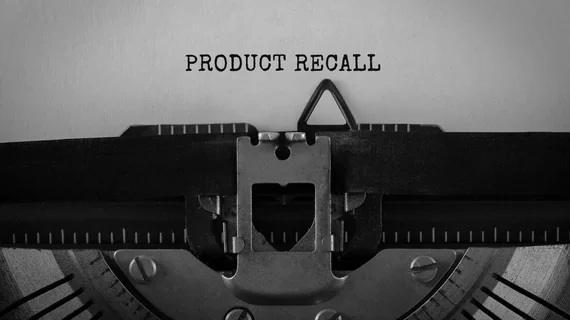Infusion system recalled for possible leaks after multiple complaints
The U.S. Food and Drug Administration (FDA) announced a recall for Ivenix Infusion System, a large-volume pump used in hospitals and other healthcare settings, due to a leak in the system.
The move comes after Fresenius Kabi plunked down nearly one-quarter of a billion dollars to acquire Ivenix last year. Fresenius is a global healthcare company and one of the largest kidney care providers in the United States. The company acquired Ivenix, a medical technology company with an FDA-cleared infusion pump, nearly one year ago for $240 million.
According to the FDA, Fresenius Kabi is recalling the Ivenix Infusion System “due to a leak in the system that allows fluid to enter the Administration Set Loading Area near the Air Detector.” The leak can cause damage to the electrical system and lead to loss of power and failure of the system’s Set Identification (Set ID) sensor.
The FDA announced 1,546 devices were being recalled, which were distributed from Oct. 27, 2021, through Jan. 30, 2023. The pump system, which delivers blood or blood products, drugs and other fluid mixtures through blood vessels, the back/spine (epidural), or beneath the skin (subcutaneous), is used for adults and pediatric patients.
The failure of the device through the leak problem can delay or interrupt treatments, depending on the timing of the failure, the FDA said. The issue can cause serious injury or death to patients due to interruption, under-infusion or delays in the delivery of critical fluids, blood products and medications.
Fresenius Kabi has received 14 complaints related to the issue with the pump system, though no reported injuries or deaths. The company sent an Urgent Medical Device Recall letter to its users and customers, including instructions to have a backup pump in treatment situations, reporting alerts and system failures, as well as cleaning instructions. Customers were also asked to complete and return an enclosed response form.
The FDA’s announcement of the recall comes two days after Fresenius Kabi’s Ivenix Infusion System received an Innovative Technology contract from Vizient. These contracts “are recommended after review and interaction with products submitted through Vizient's Innovative Technology Program,” a press release stated. The contracts set terms for hospitals to evaluate and purchase the Ivenix Infusion System, and Vizient members represent more than $130 billion in purchases a year.
“A product receives this type of contract when it demonstrates a unique quality that differentiates it from other products on the market,” Kelly Flaharty, senior director of contract services for Vizient, said in the press release. “Our member council determined that Fresenius Kabi’s Ivenix Infusion System met this standard and recognizes its potential to improve quality outcomes.”
The FDA issued a Class I recall, the most serious type of recall, for the Ivenix Infusion System.

